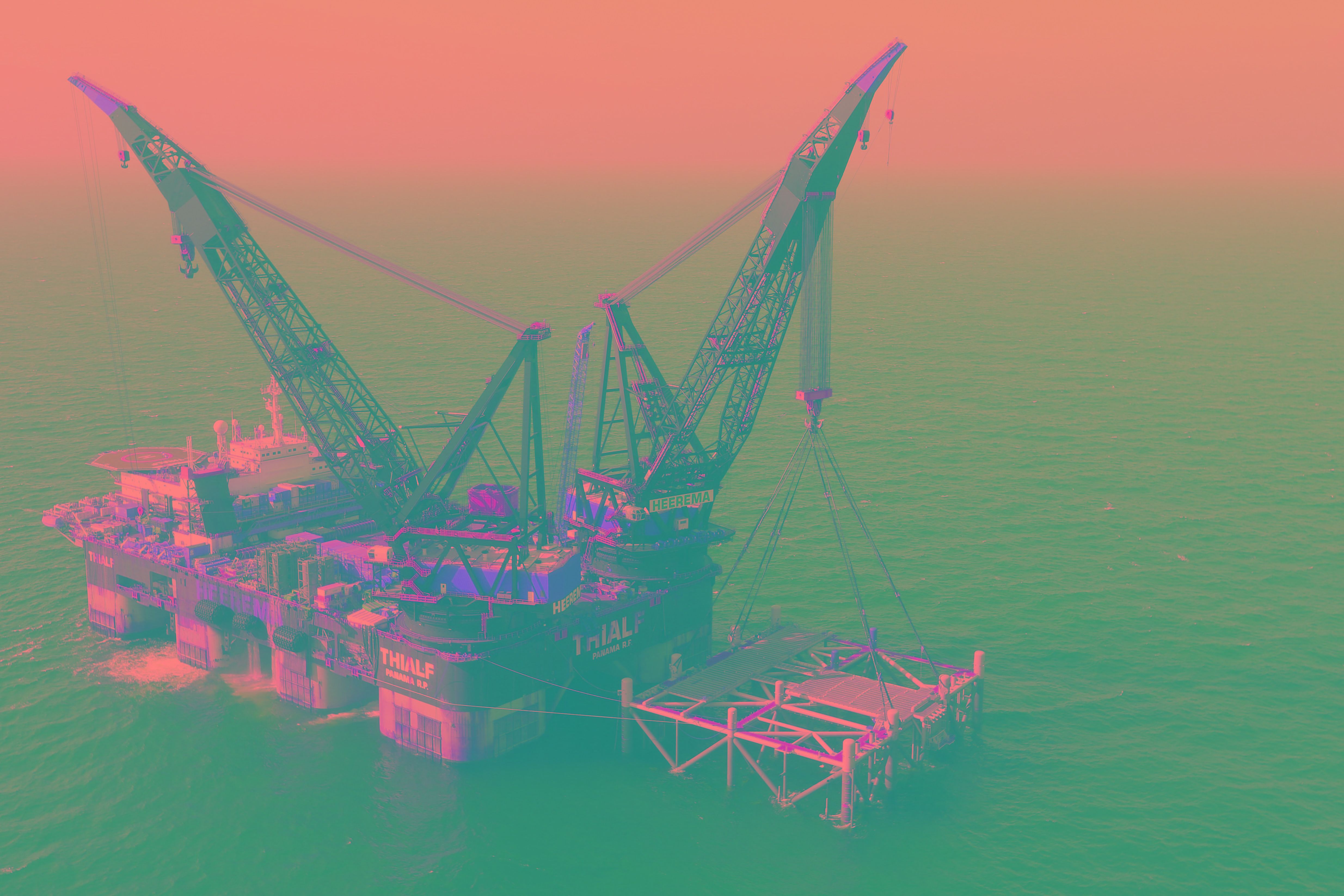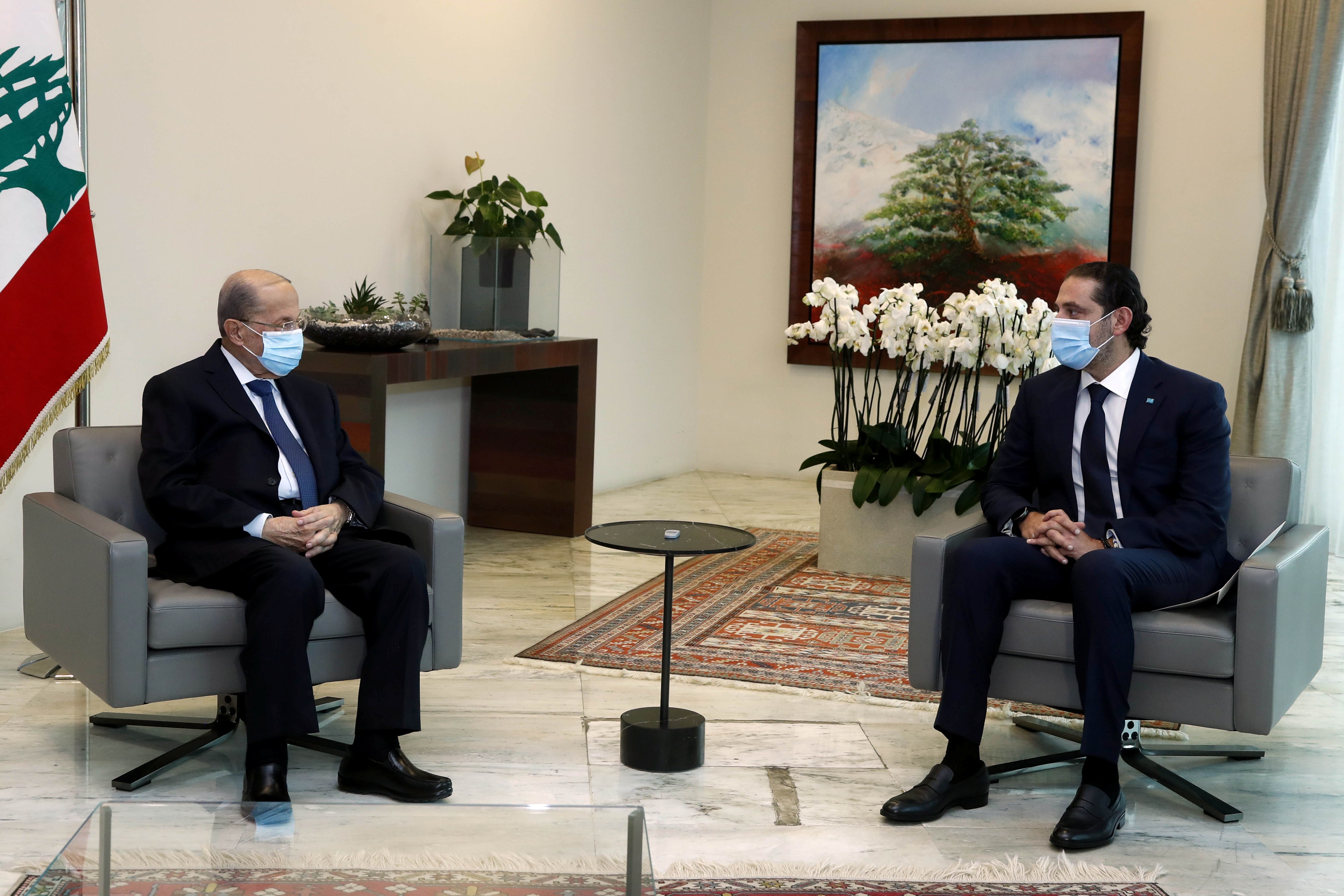Israel and Lebanon Conclude Maritime Agreement
On 27 October, Israel and Lebanon, which do not have official relations, concluded an agreement with U.S. mediation on the maritime border of the two states and the exploitation of gas deposits. The agreement will serve to increase stability in the Eastern Mediterranean, although the direct benefits for Lebanon’s economy depend on an improvement in the political situation.
 : AMIR COHEN/Reuters/Forum
: AMIR COHEN/Reuters/Forum
What are the terms of the contract?
The agreement was negotiated with the support of the U.S. Special Envoy and Coordinator for International Energy Affairs Amos Hochstein and diplomatic support from France and the UN. It defines the course of the maritime border between Israel and Lebanon (formally at war), most of which will follow the so-called “Line 23” demarcation. Thus, it regulates the ownership of the two disputed gas fields of Karish and Qana, which unlocks the possibility of extraction. The entire Karish field and a smaller part of the Qana field (17%) will be located in Israel, while Lebanon will control all exploitation from Qana. The company responsible for extraction ultimately will be French Total, which will sign an additional agreement with Israel under which that state will receive a fixed amount in compensation for its part of the Qana field. The agreement also assumes the continued participation of the U.S. as a mediator in the event of disputes relating to its implementation.
Why did Lebanon decide to enter into the agreement?
The success of the negotiations on the Lebanese side was influenced by the growing desperation of the authorities related to the deepening financial crisis in the country. The deteriorating condition of its economy (including numerous power cuts) and the increase in fuel prices led to a softening of its position. In 2020, Lebanon escalated its demands, requesting the inclusion of previously undiscussed waters near Israel in its zone, which resulted in the suspension of talks. In addition, the result of the May elections weakened the position of the coalition the most hostile to Israel and made even Hezbollah’s leader, Hassan Nasrallah, respond positively to the agreement despite his threat in July to attack Israel if the conditions were not sufficiently favourable for Lebanon. The signing of the agreement was also related to the political situation in both countries—the end of the term of the president of Lebanon, Michel Aoun, who supported the deal, and the elections to the Israeli Knesset scheduled for 1 November.
What does it mean for Israel?
For Israel, the delimitation of maritime areas is the first formal agreement with Lebanon, although Lebanon strongly emphasises that it does not imply formal recognition of the state of Israel. The immediate effect is securing the production from the Karish field, whereas the scale of profits reported by Total from the exploitation of the Qana field remains uncertain for the time being. The agreement creates new conditions for relations with Hezbollah, reducing the maritime threats to Israel and increasing the cost of a possible conflict for this organisation. On the political level, the agreement is a success for Jair Lapid’s government (which focuses on close cooperation with the U.S. and France), although protested by the right-wing opposition, which accused the prime minister of abandoning more favourable delimitation options, succumbing to the threats from Hezbollah, and concluding a deal during the election campaign without a vote in the Knesset. Despite the criticism, the chances of withdrawing from the agreement in the event of a change of government after the parliamentary elections are slim.
How will the agreement affect the Lebanon crisis?
The Lebanese authorities hope that the extraction from the Qana field will attract more investors and limit the effects of the financial crisis. The main obstacles are internal disputes and the overtaking of state institutions by political parties, which contributes to a protracted process of infrastructure development and granting mining rights. In 2014, the first tender for the development of one of the fields took place, but it was not until 2017 that the government accepted the only offer submitted at that time. In addition, no significant gas resources have been found in Lebanese waters so far. A 2012 seismic survey showed that their amount is about 720 million m3 (the Egyptian Zuhr field contains about 850 billion m3 of gas). In order to start production, it is also necessary to perform a thorough analysis and then develop the infrastructure necessary for gas production, a process which may last even until 2026.
Instability and divisions that make it impossible to formulate a coherent foreign policy will also make it difficult to obtain potential export contracts. The resources extracted in Qana, however, may improve the quality of life of the Lebanese, increasing their access to energy, and thus their economic activity.
What are the implications for the region?
The agreement will benefit stability in the Eastern Mediterranean and foster regional confidence-building measures. Although the prospect of launching production from the Qana field remains distant, the agreement improves the outlook for Lebanon’s economy and reduces the chances of further destabilisation of the country and the non-regional consequences of this process (e.g., emigration). Domestic resources will also allow Lebanon to reduce its dependence on external suppliers, and thus reduce the tools that regional powers have used to pursue their interests in Lebanon. This, however, requires the allocation of the extraction profits aimed at improving the functioning of the state and preventing corrupt practices. The agreement also strengthens the U.S. presence in the region, which gains an additional tool in relations with Lebanon and Israel and may serve as a model for negotiations in other delimitation disputes in this area. The normalisation of the status of supply sources is also beneficial from the point of view of the growing needs of the EU’s energy diversification caused by Russia’s invasion of Ukraine. This will enable the implementation of the preliminary agreement between the EU and Israel and Egypt on gas supplies from June 2022.






